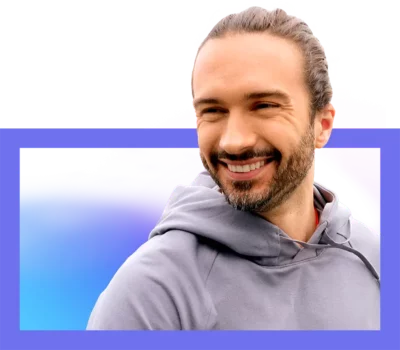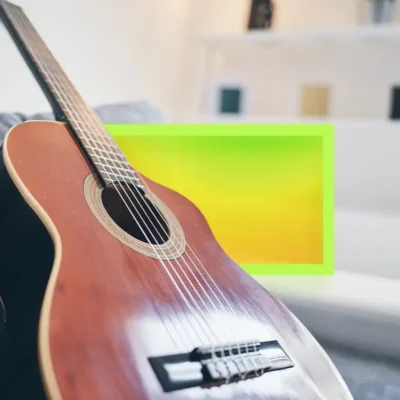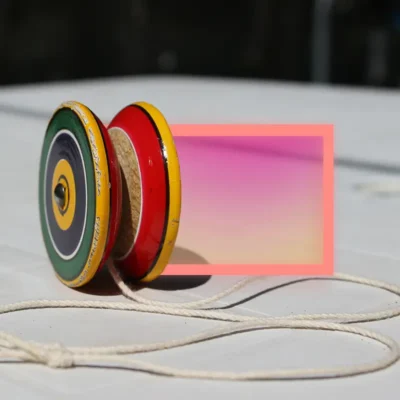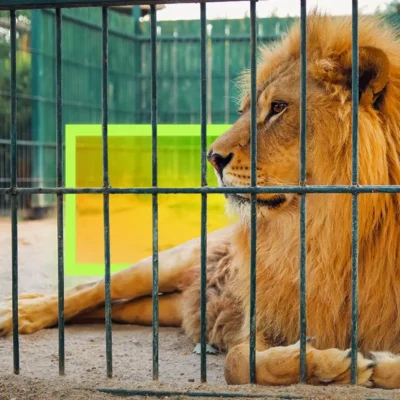Racing toward passion and away from fear
In the UK, Joe Wicks became a household name early in the pandemic with his daily workouts, called “PE with Joe,” that helped millions of us keep moving and laughing. Early on in his own life, Joe learns first-hand how fitness can help people survive hard times, as he runs miles to escape from a chaotic childhood. As he begins his adult life, he embarks on a 2,000-mile bike ride — but this time, he realizes, he’s not racing away from his fears, but running toward his purpose.
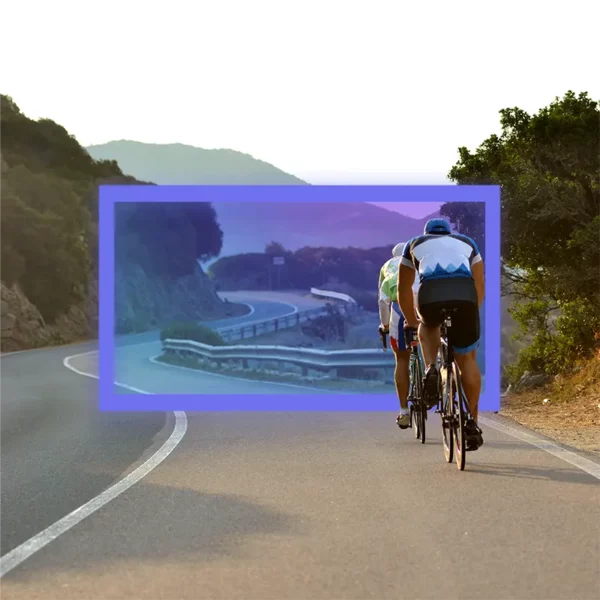
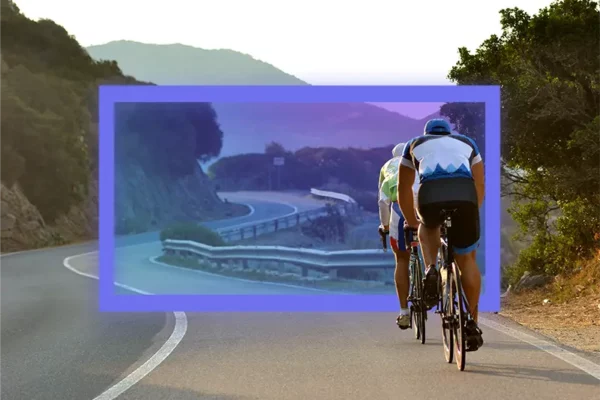
Table of Contents:
Transcript:
Racing toward passion and away from fear
JOE WICKS: When we reach San Francisco, we ride across the Golden Gate bridge. It’s gorgeous. We look out over the orange barricades onto the sparkling water below. Seagulls call out overhead. I look at Ted and see myself reflected back in his sunglasses. We’re both beaming. It’s a huge moment. This is our halfway mark.
ROHAN GUNATILLAKE: Here in the UK, Joe Wicks became a household name early in the pandemic when he began streaming workouts on YouTube each day at 9 a.m., called “PE with Joe,” that helped millions of us keep moving and laughing during the severest lockdowns. Early in his own life, Joe learns that fitness can help him survive hard times, running miles to escape from a chaotic childhood. As he begins his adult life, he embarks upon a 2,000-mile bike ride — but this time, he finds himself not racing away from his fears, but running toward his purpose.
In this series, we combine immersive first-person stories, breathtaking music, and mindfulness prompts so that we may see our lives reflected back to us in other people’s stories. And that can lead to improvements in our own inner lives.
From WaitWhat, this is Meditative Story. I’m Rohan, and I’ll be your guide.
The body relaxed. The body breathing. Your senses open. Your mind open. Meeting the world.
WICKS: My feet hit the pavement. One foot in front of the other, I run as fast as I can. My hands are clenched into fists; my arms are pumping. The sound of my trainers hitting the cement forms a steady rhythm. It’s early morning. The sky is a pale blue. I sprint towards my bus stop. The school bus is due to pull up any minute. I run right past. I keep going.
I’m 12 years old. I don’t really know why I’m running, just that it’s something I have to do. It’s getting me out of the house, away from another screaming fight with my mom, away from my strung-out dad who’s relapsed again.
I run through town, down the high street. I cut through a park. The morning dew on the grass soaks my trainers. I disturb a flock of birds pecking at the dirt, and they take flight in a gust of flapping wings. I run all the way to school.
I show up to class out of breath. My tie is loose; my burgundy blazer is rumpled and sweaty.
After that day, I run to and from school all the time, three to four miles each way. When I run, I have a better day. My mind feels so much clearer.
The anger I feel towards my parents fades when I’m running. I run the anguish away. I push my body to exhaustion, physically. When I get home, I feel toughened up. I feel like I have nothing to fear.
It’s a beautiful day on the Canadian coast. Rays of sunlight peek out between banks of low-hanging clouds and sparkle on the surface of the water. In the distance, I catch a glimpse of a small family of seals sunbathing on a rock. The wind whips strands of hair out from under my helmet. It’s day 1 of the big bike ride. We’re riding from Vancouver, Canada, to San Diego, California — 2,000 miles in six weeks.
About 60 feet behind me on the road is Ted, my closest, and really only, friend from university. I don’t give big sappy thank yous, but I’m so grateful he’s on this trip with me. He really didn’t want to come. In fact, he’s been complaining since we started. But I know I couldn’t have done this adventure without him. I’ve never really been a true lone wolf, and I know I need a friend alongside me for a challenge as big as this.
Today we head to Vancouver Island. One thing that hasn’t changed since I was a kid is my love of being in motion. I realize that in the months leading up to this trip I’d been stuck in a rut.
I think back to that time, just a few weeks ago. I’m on my Playstation, playing Call of Duty for six, seven, eight hours a day. Every so often I pretend to look for a job, and feel disheartened. What can I do? I don’t feel qualified for anything. I’m useless.
Finally I land a job interview for a teaching position, but I can’t fake it. The interviewer knows I don’t really want the job. I’m not passionate about it. I’m not passionate about anything.
I go to the gym; I play more Call of Duty. I spend time with my girlfriend, and even though I know we’re not right for each other, I continue the relationship. I do anything to distract myself.
I’m 25 when the idea for the bike trip comes to me. I know I have to do it. This will be one last big adventure. One last summer of seeing the world and spending money and only caring about myself. After this bike trip, I’ll get a job. I’ll find my purpose. I’ll grow up.
It’s day one on our ride. Leaving Vancouver, I take in the views around me as they fly past in a blur of blue and green. Lush trees surround sparkling lakes, and the pine-scented air fills my lungs.
Ted and I have a little guide book. We follow the route to the first campsite. But when we arrive, the campsite is closed. We check the guidebook again, and realize it was published 10 years ago. The sun is sinking quickly, and we don’t have other options. We’re a little bit sneaky, and we decide to set up our tent there anyway.
Ted points to a sign: “Beware of bears. Lock up your food.” I tease Ted for being scared. But as it gets dark I can really feel that there is no one else around. The pitch black sky, the trees looming overhead, it all feels a bit spooky. We tie our food into bundles, and hang them from nearby trees. We go to set up two tents, but the idea of sleeping alone feels like offering ourselves up as bear burritos on a silver platter. We cram into one tent instead.
I cue up Family Guy on my phone, and within minutes we’re laughing, distracted from the fear of being bear bait, not thinking about how our legs are already really sore, and the hundreds and hundreds of miles ahead.
Lying there in the tent, laughing alongside Ted, I’m taken back to a rare happy family memory from my childhood. I’m 7 or 8 years old. My parents have taken my brothers and me on a camping trip. We explore the outdoors together. My brothers and I chase each other around, and my parents laugh as they look on. We’re almost like a normal, happy family. For breakfast, lunch, and dinner, we eat long French baguettes smeared with Nutella. As a kid, this is heaven. I don’t know we eat like this because we’re poor.
GUNATILLAKE: This is a special memory for Joe in what otherwise is a difficult childhood. If you were to cast back for a happy memory from your childhood, what would it be? Bring it here, past and present merged.
WICKS: I’m fourteen, an angsty teenager in my childhood home. We live in a semi-detached three-bedroom council house, which I share with my two brothers and my parents. The house smells of bleach from my mum cleaning all the time. She has obsessive compulsive disorder, anxiety, and eating disorders. Cleaning is her way to cope with everything. She needs things to be so completely spotless that she forbids us from having friends over, and she tells us to make our beds, and then make them again, and again, and again until they’re perfect.
I don’t understand why she acts like this. I fight her on everything. Slamming doors, punching walls, screaming. Is any of this normal? Do other mothers act this way? Why do we have such a chaotic, confrontational relationship? I’ve been running to school to let off steam.
At 16, I join a gym. This becomes my safe space. I go any chance I get, after school, for hours at a time. I know I have to go somewhere, that the alternative is going down the street getting into drugs, or getting into fights. I don’t want to become an addict, like my father.
We all have pain. My mum soothes hers by scrubbing the whole house three times a day. My dad soothes himself with heroin. And I find that I can soothe myself with exercise. As long as I keep moving, I’m okay.
Cycling down the coast of Oregon State, I’m in awe of the breathtaking mountain backdrops. I take in the beauty while making sure my legs keep pumping, no matter the steepness of the road. The numbers on my bike’s odometer keep ticking up. I’m not going back. No matter what, I’m only going forward.
The songs of Bruce Springsteen — ”Thunder Road” and “Born in the USA” — keep my energy up as I maneuver my bike through hairpin curves. After a few hours, my iPod dies. I see Ted in the small rearview mirror I’ve clipped to my handlebar. His head is down, concentrating on the effort of each mile. He’s not as thrilled as I am by how hard some of these rides have been. There’s been a bit of tension when I want to keep going and he needs a break. I see how hard he’s pushing himself now, and I know he’s working through it.
When we set out this morning, we had shared a few miles of small talk, but now, it’s just me, the open road, and my thoughts.
Today’s portion of the bike trip is more challenging than most. We’re on mile 90, and we still have 20 miles until we reach the campsite. Most of it’s been uphill.
Usually, I look forward to hills. I see that we’re approaching an incline, I cue up a great pump-up song, and I lean into it. I like knowing I’ll reach a peak and get to experience the glorious descent on the other side.
Today, though, it’s brutal. It’s 90 degrees Fahrenheit. Ted and I cycle up and down the Oregon hills at an average speed of 12.2 miles per hour. On an incline, it’s like dragging a car tire on a rope along the ground. Every single rotation of the bike pedals is an effort. It’s a deep burn so painful it feels numb. I reach the stage of what I call cycling delirium, where everything slows down. I look at my legs and question what’s driving them. It’s like autopilot. Eventually, I don’t feel anything. And then, I find myself becoming hypersensitive. A line in a song suddenly overwhelms me, and I want to cry.
Once again, my mind drifts back to my early childhood. I’m 5, 6 years old. It’s early morning, maybe 4 a.m. The whole family is fast asleep.
I hear a loud, pounding knock. Police officers are at our front door. We all have to evacuate while they raid our home. A fear wells up inside of me. Are they going to take me and my brothers away?
The police look for something, maybe drugs, or evidence of a crime my dad got involved in to buy drugs. They don’t seem to find anything, and eventually they leave. My family stays intact, in the sense that we can all keep living together. But the cracks in our family begin to worsen. In the coming years, my dad is in and out: a few months in rehab, a few months at home, then a relapse, and he’s gone again. My trust in him has completely eroded. Whenever he says he’s going to buy milk, I think he’s going to buy drugs.
The fact that my dad can’t overcome his heroin addiction fills me with a kind of anger I don’t know what to do with.
After over eight hours of biking, I still haven’t reached the campsite. The sun has completely set, and we’re biking in the pitch darkness. My body is exhausted; my nerves are frayed. I don’t know if I can make it.
Finally, after what feels like an eternity, we roll into the campsite. I check my odometer: 108 miles in one day. “108 miles!” I yell to Ted. We chest bump each other. We let out giant yells.
I smash Ted into a giant hug. This trip lets me do what I love, but Ted has been there for every mile even when he’s hated it. His resilience to keep going is the resilience I know I need to grow up. As much as he’s threatened to get off his bike and catch a bus to San Diego, he hasn’t run away.
We were running on empty. Completely spent. No day will be harder than today. We’ve found the ability to keep going — we can go farther than we ever thought. But where are we really going? We’ll bike as far south as the border, but then what?
I start to think my need to have forward momentum, to keep up the brute force of pushing myself, is meaningless if I don’t have direction, if I don’t have a purpose.
GUNATILLAKE: In his own way Joe learns the relationship between the body and wisdom, how the physical supports the mental. Let’s express purpose in our body. If you’re sitting or standing, being up straight, relax your shoulders, the heart open and steady. Inviting you to release any tension in the body.
WICKS: Biking through Redwood National Park is a dream. I’d read about the sequoias and the great redwood trees, but I didn’t expect them to take my breath away. They’re massive, so big you could drive a car through them. As I ride, I tilt my head back, barely able to see the treetops. They tower above me. Three hundred feet tall. Thousands of years old. With the wheels of my bike crunching over pine needles, and Ted keeping pace, I feel awe and humility and a profound sense of calm settle in me. A connection with nature unlike anything I’ve felt before. How have these trees lived for thousands of years? How can life be so beautiful, so precious, and how could I ever take it for granted?
I get used to feeling sweaty all day, and quickly learn to give up hope of finding a nice shower. Sometimes, we reach the place where we thought we’d camp, and there’s no campsite. We sleep on benches, under lifeguard huts. One night, we sneak into the back garden of some derelict youth club, and we find a big trampoline. We unfurl our sleeping bags and make the trampoline into our campsite for the night.
When we reach San Francisco, we ride across the Golden Gate bridge. It’s gorgeous. We look out over the orange barricades onto the sparkling water below. Seagulls call out overhead. I look at Ted and see myself reflected back in his sunglasses. We’re both beaming. It’s a huge moment. This is our halfway mark. We’ve gone 1,000 miles, and we know we can make it all the way.
Riding down to Southern California, the grasses are brown and dry along the roadside. My cheerleader voice echoes loudly in my head. I’ve always had this voice — my inner coach. It says, “Don’t give up. Keep going. You’ll get through this.” This has been my mantra since I was known as the poor kid that no one expected anything from. The voice reminded me: “You’re just struggling a bit and you’re gonna get through this time, and things will get easier. Your relationships with your mum, your dad, they will all change.”
We ride through Santa Monica and Venice Beach under a blue sky. The sun casts a yellow glow over a beach full of people exercising and surfing and skateboarding on the boardwalk. Artists peddle their paintings and sculpt mermaids out of sand. Everyone is just unapologetically themselves. I watch a 60-year-old guy with a lifetime of sun-wrinkled skin in neon Spandex pass me by on roller skates. I swivel on my bike seat to Ted, to give him a big thumb’s up, to say, “This place is amazing.”
With the sun on my skin, my body feeling strong from weeks on the bike, I feel content. I think about my family and our road to finding happiness. The healing we’ve had to process goes back generations.
My dad’s dad ran away with another woman and left my dad as a young boy. My mum’s dad abandoned her when she was a baby and she spent two years in a foster home. This lack of love caused so much pain that they masked in different ways.
My relationship with my parents is on the mend, different from when I was a kid. My mum and dad are both in better places. Dad has been clean for years. I realize what he needed was connection and love. We’ve had so many conversations about it over time, and I feel grateful we understand each other better now.
I’ve found my rhythm on the bike, but as we’re closing down on the miles we have left, I know I can’t ride forever. At some point, even if I bike all the way down to Argentina, the road will end.
It’s coming close to the final stages of our trip. I will have to return home. I will have to face my girlfriend, and I know I need to break up with her. And I have to find something to channel my energy into.
As we ride through San Diego to the Mexican border, these thoughts that I’ve mulled over for 2,000 miles crystallize. I thought the answer was to run away from everything and detach from everyone, but I like being attached to others. I want connections. I want to have a purpose. I can’t run forever.
For the first time that I can remember, I know what I want to do next. I’ll get a personal training qualification. I’ll start a boot camp. I’ll help people unlock their potential through exercise, through moving their body the way I do to work through things. I’ll help them become better versions of themselves.
It’s 5:45 in the morning, and it’s still dark out. I pedal my bike through the London suburb, and even though I have a little trailer hitched to the back loaded with kettlebells, pads, and skipping ropes, the journey feels easy. Only 4 miles to the park.
When I get there, I set up all the gear. I do some light stretches while I wait. Will anyone show up to my bootcamp class today? Did anyone see the flyers I posted around town advertising this workout? If no one comes this morning, it won’t be the first time — happens a lot. But I don’t feel discouraged. I don’t even feel anxious.
For the first time, I’m deeply content. I’m here to help whoever turns up tap into their own potential through exercise. Helping people feel energized and empowered is my purpose. And I run towards it.
Rohan’s closing meditation
GUNATILLAKE: Thank you Joe, so much.
I remember meeting Joe back in 2015, where we were both at the same work thing (he’s a lovely guy by the way, no big surprise there). Back then he had started to really blow up on Instagram and then came the record-breaking cookbooks. But it was during the first lockdown in 2020 that Joe became a national treasure in the UK.
My family, like thousands and thousands across the country and I guess the world, joined Joe live on YouTube to do home workouts. And while the kids dropped out after a bit, Lucy and I kept at it for quite a long time, sweating and bouncing across our front room. Joe’s contagious energy really made a big impact on a lot of people.
As a trainer, what Joe is best known for is his HIIT workouts, which he perfected through his bootcamps in that London park back in the day. A HIIT workout, if you don’t know, is a style of workout where high intensity exercise is followed by a short period of rest. Rinse and repeat.
So for our closing meditation together, I thought it would be fitting to do a HIIT meditation. So let’s start by warming up.
And we do that by just breathing.
Breathing and knowing that we are breathing.
However the body is, letting it be how it is. No special posture, no special mindstate, no need to fix anything, just awareness. Aware of our experience as it is. Life, however it’s presenting itself.
And the first exercise we’ll do is what I call a sense round. As I call out one of our physical senses, let your awareness be called there and know what is happening through that channel of our experience.
So when I say touch, notice what is present and most obvious through your sense of touch, be that the breath, a particular part of the body, or your posture as a whole.
Touch. Good.
Now to hearing. Move your attention to hearing.
Now to sight. Being aware of what you can see.
Back to touch.
Good, let’s keep it up.
Touch.
Hearing.
Sight.
Touch.
Touch.
Great. Now let’s take a little break.
Cool. Now we’re going to try some basic concentration practice. Find the sensations of the breath where it feels most comfortable. And we’re going to make the intention to rest our attention here.
Resting with the in breath, the inhalation. Resting with the out breath, the exhalation. Resting with the little bits in between the in breaths and the out breaths.
And if our mind drifts away, when it drifts away, noticing that, and just bring it back, no biggie. Again, being aware of the breath, and resting our attention there.
Ok now, another short break.
You’re doing great. Just two exercises to go. And what we’ll do here is some loving kindness.
Using thoughts, saying the thoughts “May we be well, may we be happy” quietly or silently to ourselves.
May we be well. May we be happy.
Using the words to orient ourselves to kindness.
And imagining, in whatever way works for you, all the people around the world doing this meditation workout with you.
May we be well. May we be happy.
May we be well. May we be happy.
Noticing what arises as you say the phrases. However forced or natural they may feel.
May we be well. May we be happy.
May we be well. May we be happy.
Time for a break.
One more exercise to go. And it’s the trusty body scan. Starting from the top of your head, and taking your time. Move your awareness, slowly down and through your body. Knowing what is there. Any tension, any softness. Knowing it, and not pushing it away, or holding on.
You did it. It might feel odd to do a series of meditation techniques in a fairly rapid fire way.
You might think it’s counter to the idea of mindfulness and all that.
But in my own mindfulness adventures, I’ve always highly valued the quality of flexibility, and a flexibility that has a level of precision to it. Being able to switch modes of attention, styles of mindfulness technique quickly and at will has helped me become a good all round practitioner. I’ll go for a walk down to the shops to get some pasta for dinner and do five different techniques on the way, based on what and who I come across.
So if flexibility is something that matters to me, as we cool down, take a few moments to reflect on what are the mindfulness qualities, the mindfulness muscles, that you are most keen to train in the days, weeks, and months ahead?
And as I think Joe would say, go ahead and work on those qualities, and with work and consistency you’ll make amazing progress. Making sure to have fun along the way.
Thank you Joe for your story and for all that you do, which I know is a lot.
We’d love to hear your personal fitness reflections from this episode, you can find us on all your social media platforms through our handle @meditativestory. Or you can email us at: [email protected].
Thank you.
